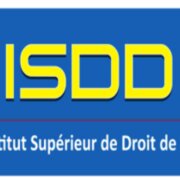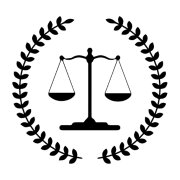Best Natural Resources Lawyers in Senegal
Share your needs with us, get contacted by law firms.
Free. Takes 2 min.
Or refine your search by selecting a city:
List of the best lawyers in Senegal
About Natural Resources Law in Senegal
Senegal, located in West Africa, is endowed with a wide array of natural resources, including minerals, oil and gas reserves, fisheries, and agricultural land. The exploitation, management, and conservation of these resources are governed by specific laws and regulations to ensure sustainable development and economic stability. Natural Resources Law in Senegal includes legislation on mining, petroleum, forestry, water resources, and environmental protection. Given its diverse ecological zones, the country has put in place various frameworks to manage these resources and balance conservation with exploitation.
Why You May Need a Lawyer
Engaging a lawyer in the field of Natural Resources law in Senegal might be necessary due to several reasons:
- Securing licenses and permits for mining, oil exploration, or logging activities, which require thorough understanding and navigation of legal requirements.
- Resolving disputes related to land use, resource rights, and contracts with local communities or other businesses.
- Ensuring compliance with environmental laws and regulations to avoid penalties and legal actions.
- Navigating complex transactions involving the sale, purchase, or lease of land and resource rights.
- Assisting in negotiations between foreign investors and the Senegalese government or local entities.
Local Laws Overview
Natural Resources law in Senegal encompasses several legislations and policies, including:
- Mining Code: This code regulates the exploration, exploitation, and management of mineral resources, including granting licenses and concessions.
- Petroleum Code: Governing the oil and gas sectors, this code sets out the guidelines for exploration and production, including contracting procedures.
- Environmental Code: Enforces sustainable practices and mitigates environmental impact through specific requirements on project assessments and biodiversity conservation.
- Forestry Code: Protects forests and wildlife areas, managing the use and exploitation of timber and non-timber resources.
- Water Code: Outlines the use, conservation, and management of water resources, including fishing regulations and rights allocation.
Frequently Asked Questions
What are the primary natural resources in Senegal?
Senegal's main natural resources include minerals like phosphates, minerals sands, and limestone, as well as oil and gas reserves, fisheries, and agricultural land.
Do I need a permit to start a mining operation in Senegal?
Yes, a mining permit or license is required, which involves complying with the Mining Code and can involve complex legal processes.
How does the Senegalese Environmental Code affect businesses?
The Environmental Code requires businesses to conduct Environmental Impact Assessments for projects to ensure they minimize environmental impact and comply with sustainability standards.
What steps are involved in acquiring land for natural resource exploitation?
Acquiring land involves fulfilling legal requirements, obtaining necessary permits, and often engaging in negotiations with local communities to ensure mutual benefits.
Can foreign companies invest in Senegal’s natural resources?
Yes, foreign investment is encouraged, but it involves legal procedures and compliance with local regulations, including obtaining appropriate licenses.
What happens if a business violates environmental laws in Senegal?
Violations can result in penalties, fines, suspension of operations, or legal action, depending on the severity of the non-compliance.
Are there laws protecting local communities' rights in resource extraction projects?
Yes, legislation provides for the consideration of local community rights, requiring stakeholder consultations and impact assessments to protect their interests.
What is the role of the government in resource extraction activities?
The government acts as both a regulator and a partner, providing necessary permits, overseeing compliance, and often entering into agreements with companies for revenue-sharing.
What is the process for resolving disputes in natural resource operations?
Disputes can be resolved through negotiation, arbitration, or legal action through designated courts or tribunals specializing in natural resource law.
How are fishing rights allocated in Senegal?
Fishing rights are managed through the Water Code, which includes licensing systems for commercial fishing operations and regulations to protect marine biodiversity.
Additional Resources
For further assistance or information, consider reaching out to these resources:
- The Ministry of Mines and Geology: Oversees all mining activities and provides guidance on legal requirements.
- The Ministry of Environment and Sustainable Development: Enforces environmental regulations and conservation efforts.
- Invest in Senegal: Provides support for foreign investors and can help navigate the legal framework for natural resource exploitation.
- Local Chambers of Commerce: Can offer insights and connections within the industry specific to natural resources.
Next Steps
If you need legal assistance in natural resources, consider these steps:
- Identify the specific area of natural resources law you need help with - mining, oil and gas, forestry, etc.
- Research and consult with lawyers who specialize in natural resources law in Senegal to understand your legal needs.
- Prepare documentation and a summary of your situation to present to the lawyer for a clear understanding of your requirements.
- Engage with a lawyer through a formal agreement outlining the services they will provide.
- Work closely with your lawyer to navigate the legal processes and ensure compliance with Senegalese law.
Lawzana helps you find the best lawyers and law firms in Senegal through a curated and pre-screened list of qualified legal professionals. Our platform offers rankings and detailed profiles of attorneys and law firms, allowing you to compare based on practice areas, including Natural Resources, experience, and client feedback.
Each profile includes a description of the firm's areas of practice, client reviews, team members and partners, year of establishment, spoken languages, office locations, contact information, social media presence, and any published articles or resources. Most firms on our platform speak English and are experienced in both local and international legal matters.
Get a quote from top-rated law firms in Senegal — quickly, securely, and without unnecessary hassle.
Disclaimer:
The information provided on this page is for general informational purposes only and does not constitute legal advice. While we strive to ensure the accuracy and relevance of the content, legal information may change over time, and interpretations of the law can vary. You should always consult with a qualified legal professional for advice specific to your situation.
We disclaim all liability for actions taken or not taken based on the content of this page. If you believe any information is incorrect or outdated, please contact us, and we will review and update it where appropriate.
Browse natural resources law firms by city in Senegal
Refine your search by selecting a city.












